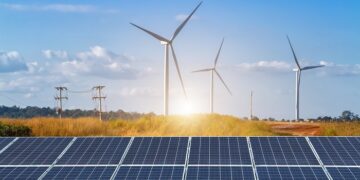Ghana’s Gold Output to Increase by 3% in 2025 Driven by Mining Expansion Projects
Ghana’s gold production is forecast to climb to 136 tonnes in 2025, representing a modest 3% increase from an estimated 132 tonnes this year, according to Deloitte’s latest West Africa in Focus report.
The projected uptick will be driven by a $525 million expansion at Asante Gold’s Bibiani and Chirano mines, alongside the anticipated commencement of operations at the Ahafo North mine.
The growth builds on the 128 tonnes produced in 2023 and underscores Ghana’s standing as Africa’s leading gold producer. Deloitte anticipates that higher output, coupled with firming international gold prices, will provide a significant boost to Ghana’s export revenues.
Gold prices are forecast to strengthen further in 2025, buoyed by looser monetary policy in advanced economies such as the United States and the United Kingdom.
Declining interest rates tend to bolster demand for safe-haven assets like gold, potentially driving prices higher.
Cocoa Production Faces Persistent Challenges
While the outlook for gold is optimistic, Ghana’s cocoa sector—its second-largest export earner—continues to grapple with a range of structural and external pressures.
The spread of the swollen shoot virus, erratic weather patterns, smuggling, and price volatility in global commodity markets have hindered the sector’s recovery.
Despite these challenges, cocoa production for the 2025/26 crop season is projected to reach 527,000 tonnes, a modest increase from the 500,000 tonnes estimated for the 2024/25 season.
However, the gains may be insufficient to reverse the sector’s broader struggles, which remain a critical drag on the country’s economic performance.
Policy Implications
The divergence in fortunes between Ghana’s gold and cocoa industries highlights the need for targeted policy measures.
While the mining sector is set to benefit from rising global demand and higher prices, sustained investments in agriculture, including efforts to combat crop diseases and enhance productivity, will be crucial to stabilising the cocoa sector.
As global economic conditions evolve, Ghana’s ability to leverage its natural resources while addressing systemic inefficiencies in key export sectors will determine its economic trajectory in the coming years.








